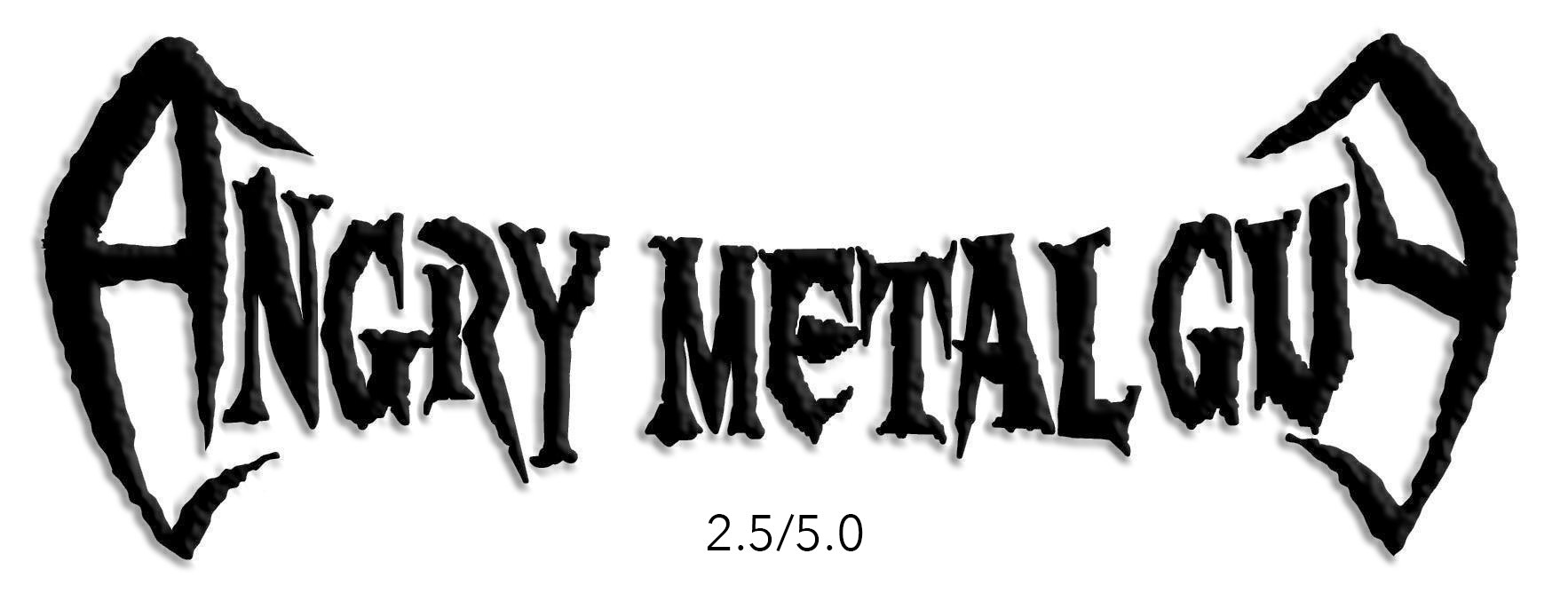The Record(s) o’ the Month for August(ish) of 2020 come with an unfortunately heavy bit of news that hit the metal scene a few days ago and which you have undoubtedly heard. As you should be able to read if you click here (image in a new tab), Anathema called it quits. It is hardly surprising that we will be getting bands calling it quits following the leveling of the music industry during this period. One commentator explained that it seems like a pretty obvious conclusion as the music industry moved from a post-Napster era, where bands made their money from tours, into a COVID-era, where that is simply not possible. And then, what’s left? But to see Anathema go is a bitter pill to swallow. Anathema showed us time and again that good music is less about the trappings and more about the compositions. For me, the albums which really sat deep were, of course, Alternative 4, Judgement, A Fine Day to Exit and Weather Systems.1 But everything they released featured songs that hit me where I lived and I am so happy to have seen them open for Opeth in London a couple years ago. So, I guess I want to say thanks and to note that their hiatus leaves the door open a crack, but it is “indefinite” and the note sounds pretty final to me. So, here’s one last goodbye. Pour one out.
Now, just let me wipe my eyes and get my flame-retardant vest on….

If you are going to do something old, do it extremely well. Havukruunu did this on their third record, Uinuous syömein sota, and I endorse this approach wholeheartedly. I’ve been pretty checked out of the broader black metal scene because so much of it feels unnecessary in 2020. Another “atmospheric” album that leaves me feeling underwhelmed in terms of power, songwriting, riffs or intensity, is something that I just don’t need to hear. But black metal was the stuff that dragged me into extreme metal early on in my Angry Metal Listening Career, and I’ve got a soft spot for the mid-to-late-90s and early-aughts when it comes to the more blackened side of metal. I did, indeed, I cut my teeth on the Norwegians, a blooming USBM scene and the intersection of the folk-y with the intense and this is precisely what Uinuous syömein sota does well. Like Kvaen and Mistur before them (and Bathory and Immortal long before them), Havukruunu writes sharp riffs that rule and songs that drive the desire to headbang. The band balances an intensity and speed, while still being dynamic, ‘groovy’ and melodic. This is black metal at its best, in my opinion. The blend of classic Bathory elements and an intro that reminds me of one of my favorite second wave moments (Kampfar’s “Hymne“) cued me in immediately that this album could be different (y’know, fun to listen to). And thankfully, Dr. A.N. Grier was right when he explained that Havukruunu “[upped] their game in almost every category (leads, solos, clean vox, and massive Viking choirs).” I’m not in love with the art, but I do love the riffs.
 Pain of Salvation // Panther — You cannot divorce the place where you are from the album you’re listening to or, I’d suggest, writing. Panther was never going to be the album that followed up In the Passing Light of Day for me because no album could. That record hit me right where I was. It became the soundtrack to one of the most tumultuous, intense, sad and exciting periods of my life and I still struggle to listen to it without tears. And, not to speak for him, but I’ll bet that Gildenlöw wasn’t in quite the same artistic frame of mind when he was working on Panther as he had been when he was working on In the Passing Light of Day. But, I am unapologetic about my admiration for late Pain of Salvation and while I agree with the Huckster‘s analysis of the album for the most part, I just like it a whole lot more than he does. Panther delivers on what Gildenlöw’s late-career strengths are: delicate melodies, intense sadboi feelz, and increased centering on the vocal and lyrical content. Longtime fans regret these shifts because, let’s face it, early Pain of Salvation was a unique voice in prog that has never been replicated or bested. Yet, even with a sound more derivative of ’70s rock, Gildenlöw consistently shows that he is a fantastic craftsman of melodies and composer of songs. When combined with Gildenlöw’s emotive voice—and he has one of the best sets of pipes in prog or metal—the delicacy and poignancy of it all adds up to something more than a derivation. In this way, Panther could have topped this list and may well end up on my list at the end of the year. While far from perfect, Panther is not the cringe-fest the name seemed to imply.2
Pain of Salvation // Panther — You cannot divorce the place where you are from the album you’re listening to or, I’d suggest, writing. Panther was never going to be the album that followed up In the Passing Light of Day for me because no album could. That record hit me right where I was. It became the soundtrack to one of the most tumultuous, intense, sad and exciting periods of my life and I still struggle to listen to it without tears. And, not to speak for him, but I’ll bet that Gildenlöw wasn’t in quite the same artistic frame of mind when he was working on Panther as he had been when he was working on In the Passing Light of Day. But, I am unapologetic about my admiration for late Pain of Salvation and while I agree with the Huckster‘s analysis of the album for the most part, I just like it a whole lot more than he does. Panther delivers on what Gildenlöw’s late-career strengths are: delicate melodies, intense sadboi feelz, and increased centering on the vocal and lyrical content. Longtime fans regret these shifts because, let’s face it, early Pain of Salvation was a unique voice in prog that has never been replicated or bested. Yet, even with a sound more derivative of ’70s rock, Gildenlöw consistently shows that he is a fantastic craftsman of melodies and composer of songs. When combined with Gildenlöw’s emotive voice—and he has one of the best sets of pipes in prog or metal—the delicacy and poignancy of it all adds up to something more than a derivation. In this way, Panther could have topped this list and may well end up on my list at the end of the year. While far from perfect, Panther is not the cringe-fest the name seemed to imply.2
 Unleash the Archers // Abyss — I’ll admit that I haven’t been on the Unleash the Archers bandwagon previously. But as the metal scene and I don’t seem to agree on a lot these days, I find myself appreciating the direct and honest approach of power metal bands to just doing what they fucking want. You want to know what the most authentic thing in the world is? Playing in a power metal band decades after it was anywhere near acceptable or even bordering on popular. Yet, here’s Unleash the Archers hitting their Apex in 2017 and following it with the sequel Abyss. I’ll let Dr. A.N. Grier catch you up on the band’s history, but let’s get this straight: Abyss is just a clever name. This album rides high on solid and undeniable Europower foundations. Yep, the band drops key changes, “machine gun” double kick, and wicked guitar solos. They sometimes reach back to the ’80s to give you “Eye of the Tiger” vibes (“Through Stars”), but you can count on them always giving you catchy, fun power metal with lots of melody and intensity. And right now, I want that more than I want almost anything. I’m with Grier on the ultimate verdict here, Abyss is a very good album from a band that continues to show up release after release. It’s dynamic, it’s fun, it’s well-written, and while it might not be Apex, it is hardly a slouch.
Unleash the Archers // Abyss — I’ll admit that I haven’t been on the Unleash the Archers bandwagon previously. But as the metal scene and I don’t seem to agree on a lot these days, I find myself appreciating the direct and honest approach of power metal bands to just doing what they fucking want. You want to know what the most authentic thing in the world is? Playing in a power metal band decades after it was anywhere near acceptable or even bordering on popular. Yet, here’s Unleash the Archers hitting their Apex in 2017 and following it with the sequel Abyss. I’ll let Dr. A.N. Grier catch you up on the band’s history, but let’s get this straight: Abyss is just a clever name. This album rides high on solid and undeniable Europower foundations. Yep, the band drops key changes, “machine gun” double kick, and wicked guitar solos. They sometimes reach back to the ’80s to give you “Eye of the Tiger” vibes (“Through Stars”), but you can count on them always giving you catchy, fun power metal with lots of melody and intensity. And right now, I want that more than I want almost anything. I’m with Grier on the ultimate verdict here, Abyss is a very good album from a band that continues to show up release after release. It’s dynamic, it’s fun, it’s well-written, and while it might not be Apex, it is hardly a slouch.


















